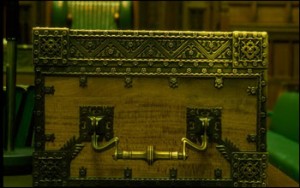Summary of today in the Lords
Three amendments tabled by Baroness O’Cathain were passed by the House of Lords tonight. The first amendment was voted through 216 votes to 178, the second was conceded by the Government and the third was voted through 177 votes to 172.
The Government also tried to pass an amendment which would have further restricted the freedom of Churches. Thankfully this amendment was defeated by 195 votes to 174 and the law has not been narrowed any further.
We at CCFON are delighted with the result and are thankful to all of you for your prayers and action in writing to peers and signing the petition. We are also thankful for the many Peers who supported Baroness O’Cathain’s amendments and spoke in favour of religious freedom throughout the debate.
Although the Government has consistently maintained that the effect of their provisions would not alter the current situation, it is the opinion of CCFON and many other Christian organisations that the proposed Governmental provisions contained within the Equality Bill would have further reduced the freedom of Churches. We are therefore grateful that the status quo has been maintained and the law has not been narrowed any further.
Andrea Minichiello Williams, director of CCFON said: “This is a great day for religious liberty in the UK. We are thankful that the law has not been changed and the freedom of Churches to control their own affairs has not been restricted any further. The results show what can happen when Christians pray and take action. Let us be encouraged that even in an increasingly secular society, the voice of the Church can still be heard.â€
Most of all we are thankful to God for answering our prayers. We serve a mighty God!
The BBC also gets in on the act.
The government has suffered three House of Lords defeats over moves churches said would prevent them denying jobs to gay people and transsexuals.
Ministers insisted their aim was only to clarify the Equality Bill and that the status quo would stay, but churches said it would create confusion.
Peers voted by majorities of 38, 21 and seven against government amendments.
The current law allows religious organisations to rule out some applicants on conscientious grounds.
The government tried to amend the bill so that exemptions to equality provisions applied only to those whose jobs “wholly or mainly” involved taking part in services or rituals, or explaining the doctrines of religion.
‘Own convictions’
But the churches argued that many clergy spend only some of their time in these roles and carry out administrative and other duties.
During debates, both sides claimed they were defending the status quo, which allows religious organisations to reject candidates for particular roles on grounds such as gender, marital status and sexual orientation.
The Archbishop of York, the Most Reverend John Sentamu, told peers: “You may feel that many churches and other religious organisations are wrong on matters of sexual ethics.
“But, if religious freedom means anything it must mean that those are matters for the churches and other religious organisations to determine for themselves in accordance with their own convictions.”
He added: “Where are the examples of actual abuses that have caused difficulties? Where are the court rulings that have shown that the law is defective? If it ain’t broke, why fix it?”
The turnout for the first division of 394 peers was the biggest for any vote since the Lords struck down plans to allow terrorist suspects to be detained for 42 days without charge in October 2008.
‘Wrongly accused’
For the Conservatives, shadow community cohesion minister Baroness Warsi drew attention to a “reasoned opinion” from the European Commission.
She said it stated that ministers had informed the commission that the Equality Bill would narrow the exemptions given to church employment to bring them into line with European Union directives.
But Lords leader Baroness Royall said the government “did not” tell the European Commission that the bill would bring the UK into line with the relevant directive.
She said: “It was incorrectly stated in the reasoned opinion. The government have been wrongly accused by the commission of saying something.”
Speaking on the government’s intended change to the bill, she told peers: “We recognised that there was a need for further clarification and that is precisely what this amendment seeks to do – to clarify, not to change.
“The government’s intention is not, and never has been, to narrow the scope of the exception,” she added.
Baroness Royall said the clarification would ensure that the church could turn down some candidates when explaining or promoting the religion was not “intrinsic to the role”.
Of course, we need to remind ourselves that when the Bill returns to the Commons the Government may simply overturn the Lords amendments. It ain’t over yet.

Leave a Reply